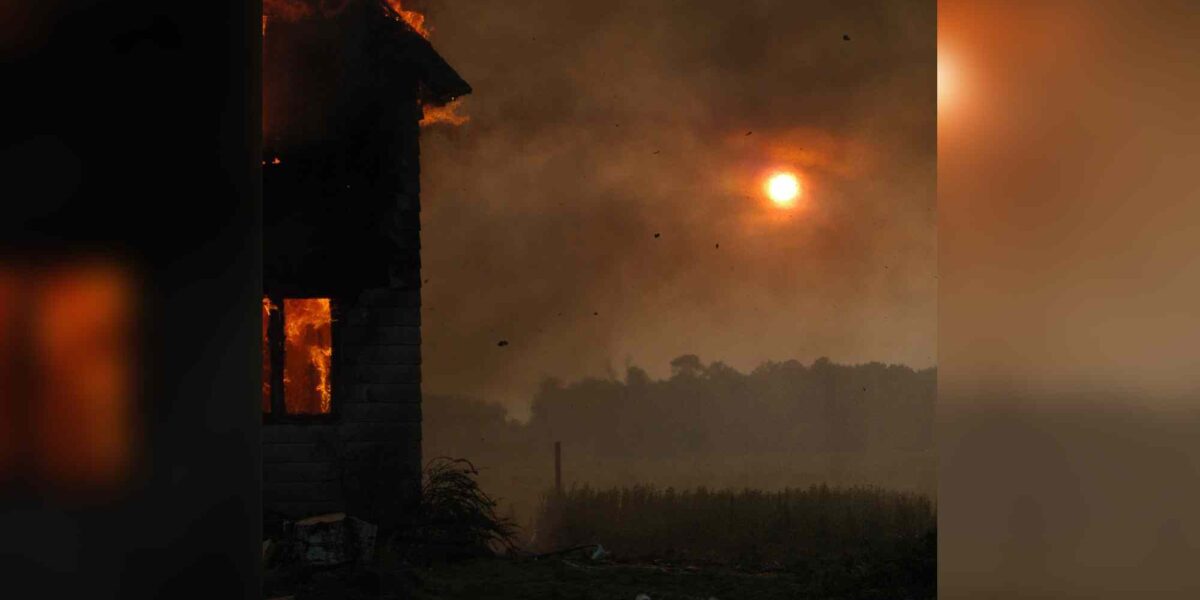Amid forest fires on an unheard of scale and heat waves gripping the northern hemisphere, Canada announced a National Adaptation Strategy to tackle the effects of climate change. This comes after lagging attempts to implement adaptive measures to protect people from the worst effects of climate change.
After coming out of the hottest week on record, with temperatures in countries reaching the low to mid 40s, Canada has been struggling with the forest fires burning the most hectares of land in its history. The smoke from the wildfire blanketed Southern Ontario in early June, owing to over a hundred fires in Quebec, 79 of which are still burning. But now forest fires in the B.C. interior have contributed to the deteriorating air quality and have also led to the evacuation near communities like Pemberton and Gold Bridge.
The ongoing forest fires throughout Canada have now burned over 111,000 square kilometres of land as of July 20. Experts are calling it the worst wildfire season in the history of the continent.
“Woefully unprepared for the impacts”
Michael Brauer is a professor at the School of Population and Public Health at the University of British Columbia, focusing on the health effects of climate change. He said that in the past 20 years, the focus should have been on these events as more normal, with necessary adaptations like updated building codes.
“We’ve done a lot of the work to identify what the core concerns are and who is most likely to be most severely impacted,” Brauer said. “But we’re woefully unprepared for the impacts.”
Climate change forms the obvious link between worsening forest fires and higher temperatures. The World Health Organization (WHO) and the World Meteorological Organization (WMO) warned about the new reality of intense heat from climate change this week. The WMO said that while day time temperatures were dangerous, night time temperatures held the biggest risks, especially for “vulnerable populations.”
“There is a desperate and urgent need for regional and global action to effectively tackle the climate crisis, which poses an existential threat to the human race,” said The WHOs regional director for Europe, Hans Henri P. Kluge.
In B.C., a nine-year-old boy died from an asthma attack exacerbated by wildfire smoke. Afterwards, the B.C. Coroners Service precautions to prevent increased complications from wildfire smoke. This included a recommendation to “always carry any necessary medications with you,” even though the boy used his puffer prior to his death.
In-action on climate change leading to deaths
Recently, The Tyee reported that recommendations made after 2009 heat wave deaths in the province were not implemented before the 2021 heat wave. This lack of action led to the deaths of 619 people. When asked about the excess death, then-NDP premier John Horgan said that “there’s a level of personal responsibility” with victims who died, and that “fatalities are a part of life. After Horgan resigned as premier, he joined the board of directors of Elk Valley Resources, a subsidiary of Elk Valley Coal.
In B.C, heating is required in every unit to heat to 22 C, but ongoing pressures from landlords are pushing against air conditioning being installed into rental units.
READ MORE: Landlord-tenant relations reach a boiling point over A/C units
Some changes from the recommendations have since been implemented.
Brauer said that other cities like Paris and New York had blueprints in place to minimize deaths in similar conditions to the 2021 heat dome.
“So, we also knew how to prevent the deaths that occurred – we just didn’t act adequately,” he said.
Currently, only 60 per cent of long term care homes in Quebec have air conditioning, leaving 40 per cent of residents without adequate protection against heat waves. Though the percentage of rooms with adequate air conditioning has risen over the past decade, 2023 only has a 2.3 per cent increase from the previous year.
Even though provinces are making marginal improvements to LTC facilities, Health Canada released a statement announcing they won’t create federal legislation to enforce changes across the country.
“Legislation will be respectful of provincial-territorial jurisdiction. That is, it won’t mandate standards or regulate long-term care delivery,” the Health Canada statement reads.
In a public statement, the Canadian Health Coalition reiterated their calls for enforceable national standards in contrast to the federal government’s latest stance.
Vulnerable populations include those who are homeless or left without shelter by varying levels of government. Before the federal government was pressured to provide financial support, refugees in Toronto were left on the street in the rain and heat.
July 4 was the hottest day in approximately 125,000 years, with the second hottest day being the day before. That week brought a significant heat wave in areas across the country that reached 40 C with humidity factored in.
Brauer said he was not sure what the future of climate change looks like in Canada, but noted that Canada is finally combining mitigation and adaptation in their approach.
“We need to do both, and there is a hope that adaptation can also be directed to both address climate change but also other long standing health and health equity challenges, like substandard housing,” he said.



